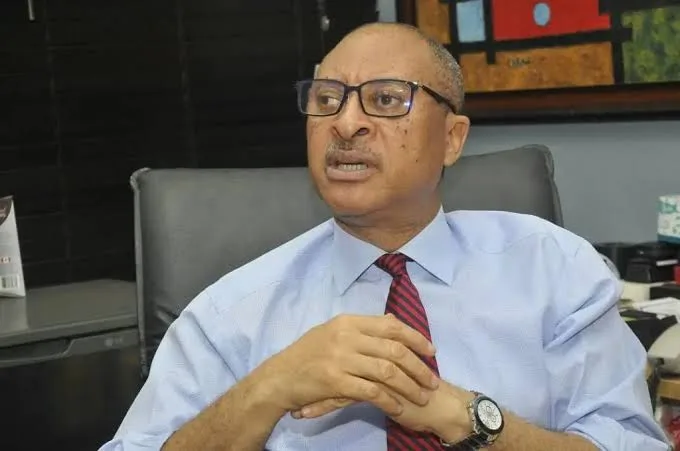Professor of Political Economy, Pat Utomi, has criticised the federal government’s economic direction, saying its relentless push for revenue is doing more harm than good.
Sppaking during an interview on Politics Today aired on Channels Television on Friday, Utomi said the government’s “obsession” with generating revenue is weakening the economy instead of strengthening it.
“Most non-productive sectors, the political class, for example, and we need to get the resources that are available to go directly into ramping up food first of all, and then the value chain from those factor endowments around agriculture,” he stated.
He argued that rather than channeling resources into productive areas like agriculture and manufacturing, much of the country’s wealth ends up serving the political elite.
Utomi also pointed to the adverse effects of high import taxes on traders, noting that the cost of doing business through the ports has become unbearable.
“Ask any trader today how much they can bring through the ports. The desperation for rising revenue means that every container is being sold at about N18 million or some similar amount,” he said.
He raised concerns particularly about the pharmaceutical sector, warning that overtaxation is crippling essential drug imports.
“Many pharmaceutical importers have very thin margins on their anti-malarials and related drugs. When they come through the ports in this desperation for revenue and get hit with tax on each container, it means they can’t import a new set of containers of anti-malarials,” he explained.
Utomi said this situation only favours politicians while worsening conditions for everyday Nigerians.
“It means that while government revenues are going up — and are being squandered by politicians — the Nigerian people have no possibility of a better life,” he said.
“This revenue issue needs to be put in context and properly understood. To use revenue as evidence of progress is not to understand economics.”
Utomi acknowledges naira shows some sign of stability
While acknowledging that the naira had shown some signs of stability, he argued that it doesn’t equate to economic recovery if inflation remains high and people’s purchasing power keeps shrinking.
“If you are from hell to purgatory, have you been saved from damnation?” he asked rhetorically, challenging optimistic narratives about the economy.
He emphasised that real improvement should be gauged by factors like job creation and access to basic necessities.
“Food is the ultimate. When people can’t eat, anything can happen,” he warned.
Utomi urged the government to shift focus and invest more in critical sectors like agriculture, education, and healthcare, stressing that such investments are vital for securing Nigeria’s future.
The remarks come shortly after the National Bureau of Statistics reported a 3.13 percent GDP growth for Q1 2025, higher than the 2.27 percent recorded in Q1 2024.



